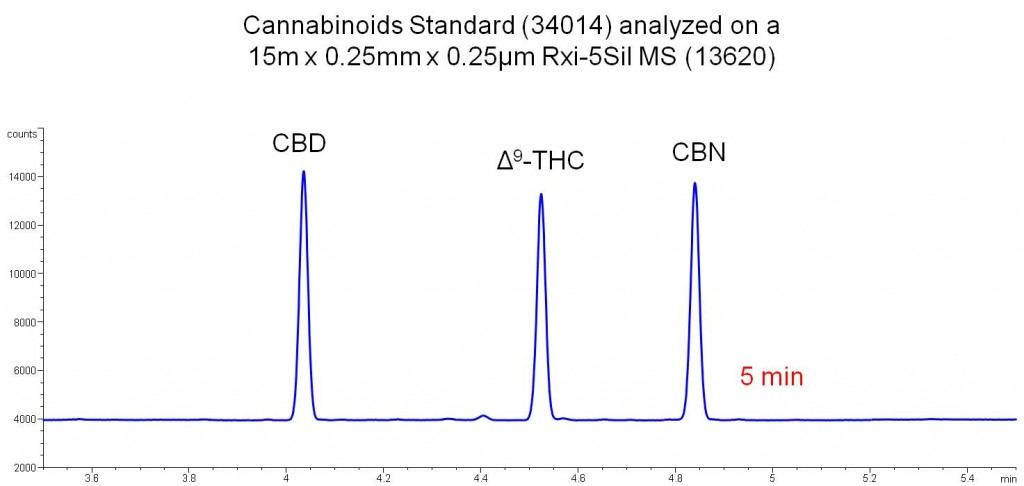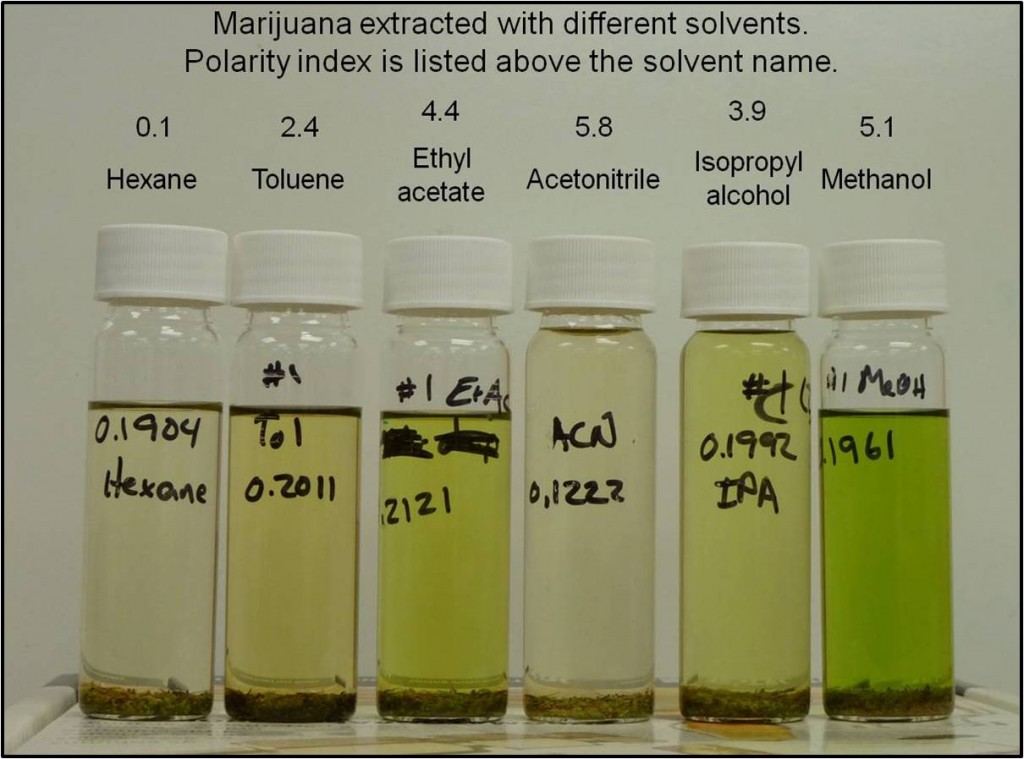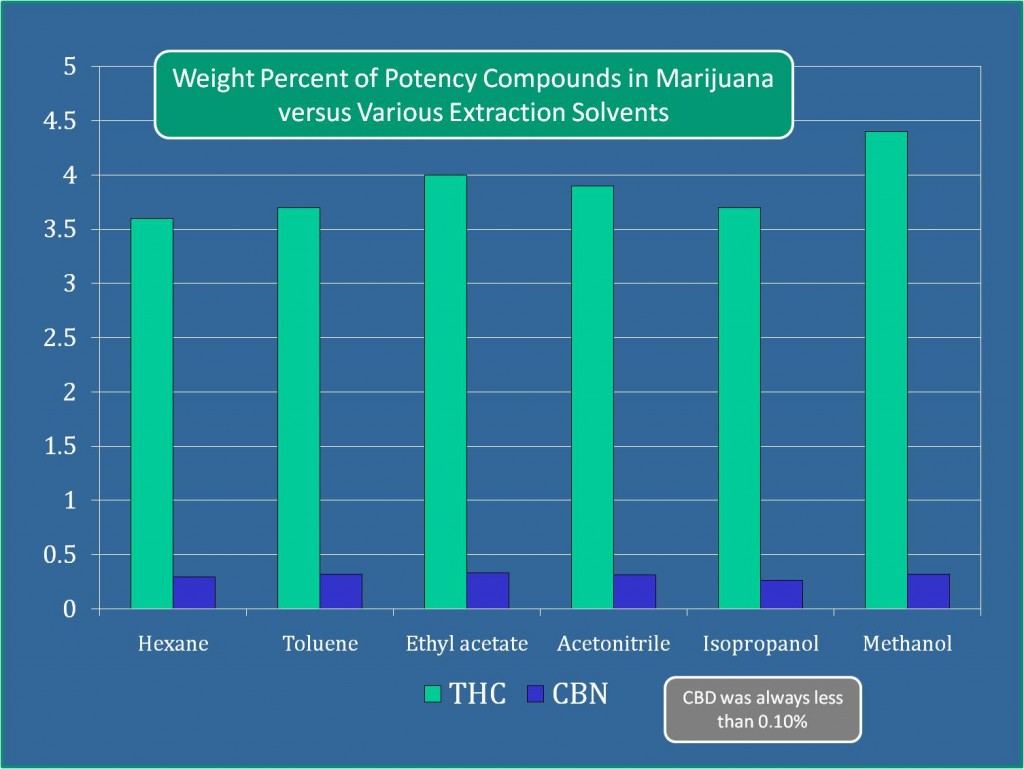Pretty much any partially polar or nonpolar solvent can be used to extract hash oil, some are better than others.
So here goes:
Butane
Pros: It makes wonderful oil and it's very easy to remove every last trace of it, especially if you have a way to purge it with a vacuum (which I recommend for any solvent extract). Ready to smoke the fastest of any method listed here.
Cons: It's the most flammable thing on this list, considering ether is also on this list that's saying A LOT! Because of that it needs the most ventilation. As in outside and away from people unless you happen to have a fume hood in your house. Some of us don't have that kind of privacy. It also requires more specialized equipment, specifically a stainless steel or glass tube that you can inject butane into, which also limits the batch size. Do not use a PVC or other plastic for the tube. You can pull plasticizers out of in and into your oil!
Ether
Pros: Makes wonderful oil, also evaporates quickly (it boils at body temp!). Is just a generally extremely useful solvent.
Cons: needs to be stabilized or distilled fresh or it forms explosive peroxides with the oxygen in the air in the bottle. Requires glass or steel. It loves to catch fire. It will autoignite (no spark needed) at 160C. Hope your oven isn't on. It's almost as flammable as butane, and the only liquid on this list that gets a flammability rating of 4 on the safety diamond. Skip it if you don't have extensive lab experience.
Isopropanol
Pros: The most readily available and cheapest on this list. If a very fast wash is done it makes excellent oil, but ultimately the yield is limited by the fact that it starts pulling out chlorophyll and sugars if it stays in contact with the weed for any real period of time.
Cons: Pulls out things besides the resin, is pretty flammable despite the small amount of water (don't even bother with the 70%, it must be 91%+) due to it being a branched hydrocarbon and having an oxygen atom. Low yield because you can really only do a quick rinse or you get poor taste if any chlorophyll or sugars gets into the oil from soaking too long.
Ethanol
Pros: Less flammable than IPA. YOU CAN DRINK IT! Really I wouldn't do this to make oil but green dragon is awesome. I decarb bud before extracting to make a more potent product.
Cons: if you are making oil it's a waste of ethanol which could cause ancestral haunting if you're Irish like me :) Probably other hard drinking groups like Russian or Polish as well.
Acetone
Pros: I can't really think of any
Cons: Doesn't fully evaporate!! Doesn't fully evaporate!! Also pulls out chlorophyll and sugars like IPA. Also extremely flammable. Skip it!
Pentane
Pros: Pulls great oil of equivalent quality to butane. Evaporates very fast (it also boils at body temp, hold the flask in your hands when evaporating and watch it start to boil!). Can be used for a large batch if you have a way to minimize evaporation.
Cons: needs really good storage or you risk opening an empty bottle. Requires a glass or steel vessel to extract and evaporate in.
Hexanes
refers to n-hexane, isohexanes, or a mixture of isomers
Pros: basically the same as the other hydrocarbons as far as quality (I can't tell the difference), a little better for bulk extractions as it evaporates slower than pentane, I still wouldn't leave it that long. An hour at most.
Cons: needs to be done in glass or steel (like everything but the alcohols)
n-Heptane
Pros: that great alkane oil! Can sit for a few hours to really soak everything out of the weed. I'd give it a period stir to check on it and maximize extraction. Because n-heptane is produced by a species of pine tree it is available in very high purity for pretty cheap.
Cons: Glass or steel required, flammable. Really about as minimal as you can get for an organic solvent.
Naphtha
Pros: Rick Simpson seems to like it. Gives an ok extract.
Cons: Steel/Glass required (I wouldn't suggest a rice cooker, most have plastic parts that will come in contact with the solvent and probably end up in your oil), is a mix of light alkanes from crude oil so it's inconsistent batch to batch. Sometimes has traces of heavy material from production (bad distillation) or just added in because it drives production costs down and still retains the correct properties required to be a naphtha cut.
Solvents to Avoid Like Plagues
Benzene. Great solvent, except for that little problem with being a terrible carcinogen. Chemists used to wash their hands with it. Looking at our history I'm honestly shocked anyone survived their PhD in organic. No safety gloves, shitty or no fume hoods. Smoking in the fucking lab (this is how the sweetening properties of the first artifical sweetener were discovered, someone noticed the cigarette they were smoking tasted sweeter!)
Anything with the word fluoro, chloro, bromo, iodo, or halo in the name. These are halogenated organics and as a general rule are toxic. Their are exceptions but the light solvents aren't among them, and the exceptions are generally better reserved for other uses (like the anesthetic halothane). You're most likely to encounter chloromethane, ordichloromethane, or chloroform, or carbon tetrachloride. These are great solvents, but toxic as fuck. In the last decade most labs have made an effort to reduce or eliminate their use (halogenated organic solvents in general, not just the methanes) because they're so toxic. When I took organic 1/2 we used DCM all the time in the lab, I've since TA'd organic labs, we don't use it for anything in first year lab anymore. There's a reason, and it's not price!
Methanol, it's just really fucking poisonous and there's so many alternatives.
Nitromethane, there's much better uses for it. Like reduction with piperonylmethyl ketone or Knoevengal condensations with benzaldehydes. But those are topics for PMs. It might be useful, but I'm not figuring it out.
Probably many others I'm not thinking of.
General Tips
Before using any solvent I advise you do a mirror test with it. On a very clean mirror or piece of glass put a drop of solvent (or spray a little with butane) and spread it around a little. Let it evaporate and make sure there is no visible residue. This isn't 100% accurate (acetone leaves a residue undetectable to the human eye), but it avoids most nasty waxes and shit.
Read the MSDS for the product you are purchasing. Make sure the only products listed are the solvent you want. Some mixtures like hexanes and naphtha may list a few things but they should all be solvents, usually they'll end in -ane and have a Greek number before it. Ask me if you see anything you're not sure of.
After the solvent has evaporated it's good to either use a vacuum, or heat, or a combination of the two to get the last little bit of solvent out of your oil. I like to use a double boiler type setup where I fill the pot with a concentrated salt solution. This raises the boiling point of the water enough that it can get to a temp of >106C (at sea level anyway, I'm not sure how hot it can get for folks living in the mountains.) which is the temp where THC starts to decarb pretty rapidly. Leave the container with your oil in it in the hot water bath for about 15mins to get any residual solvent out and to decarb the oil. Don't leave it in for longer as THC can start to degrade noticeably after 30 minutes or so.
If you are using vacuum and heat don't let the temp go over 50C and don't pull too strong of a vacuum (keep it at at least half atmospheric pressure, so 8psi, or 380torr/mm Hg, 15in Hg, etc)



